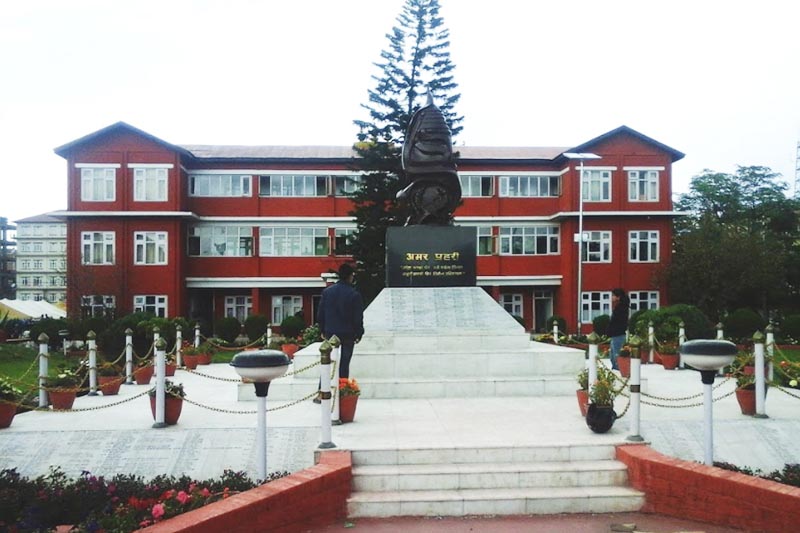Nepal Police devises action plan to curb crime
KATHMANDU, JUNE 26
Nepal Police has developed an action plan to tackle criminal activities that are expected to increase following the relaxation of coronavirus-induced lockdown.
As per the action plan released by Nepal Police Headquarters, it aims to prevent, control and reduce the potential crimes in a systematic way, while efficiently managing their impacts on normal life. “The action plan provides guidance to the security agency to adopt measures against crimes in association with stakeholder agencies through information sharing,” it reads.
Nepal Police expects the rise in incidents like theft, robbery, murder, violence, domestic and gender-based violence, financial crime, road accidents, abuse and smuggling of drugs, human trafficking, activities of Netra Bikram Chand-led outlawed Communist Party of Nepal, unnecessary crowd, black-marketing, protest rallies of political parties, caste-based violence, attack on local level officials over relief distribution, vandalism on vehicles bearing Indian registration number plate, attack on health workers, obstruction in national pride project and threat to cyber security and spread of rumours related to COVID-19.
According to Nepal Police, it has already started mobilising security forces to subdue the criminal offences in line with the action plan. “Plainclothes cops have fanned out in areas vulnerable to theft and robbery, with special focus on business and financial hubs. Many thieves and robbers, who have been released from jail, are under surveillance. Security strategies such as ambushing and patrolling have been stepped up through intelligence gathering to prevent and control theft and robbery,” it said.
As set down in the action plan, separate investigation teams have been formed to initiate micro-surveillance on professional criminals and gangsters in all districts. The teams will carry out surprise inspection of suspicious hotels and lodges and identify persons involved in trading small arms to curb crime such as murder.
Similarly, Nepal Police has stepped up crackdown on production, sale and distribution of unlicensed liquors to prevent and control domestic violence in grassroots level. “Security officials have developed a strategy to prevent online and cyber-based crimes, and keep vigil against hundi traders and fraud racket for the purpose of discouraging financial crimes,” it says.
In a bid to reduce road accidents, time card system will be used besides initiating action against traffic rule violators and conducting public awareness campaign. Nepal Police is also collecting intelligence about syndicate of narcotic drugs and their individual clients across the countries by forming special task forces.
“As part of measures against human trafficking, rigorous checking has been conducted along the international borders. Human traffickers, who were convicted of crime and released later, are under surveillance.
Police personnel will quiz women and girls separately at border points,” the action plan reads.
Nepal Police said special teams were mobilised to curb the illegal activities and extortion terror of outlawed CPN by mobilising the persons, who have quit the armed group.
It is also doing groundwork to bring to book the persons or groups involved in anarchism under the pretext of political activities.
“Plainclothes cops will be mobilised in and around the religious sites like madarsas, churches, mosques and temples to ensure that religious and caste-based violence doesn’t occur in the country,” the action plan states. NP and its subordinate units will identify proxy sites and unethical hackers, make cyber security reliable and coordinate with ethical hackers to prevent cybercrimes.
Other protest programmes expected by the action plan are related to Millennium Challenge Corporation, border encroachment, Rukum massacre, relief distribution, development projects, health services and quarantine facilities. According to Nepal Police, it will provide necessary budget to all its units for the implementation of the action plan.
A version of this article appears in e-paper on June 27, 2020, of The Himalayan Times.






